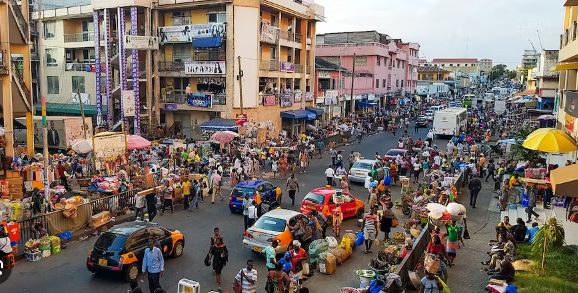Dr. Ernest Addison, Governor of the Bank of Ghana, continues to express optimism about Ghana’s economic trajectory and the continuation of disinflation efforts.
At a gala dinner celebrating the 130th anniversary and official name change of FBNBank Ghana to FirstBank Ghana, the central bank governor expressed confidence about the domestic economic recovery.
Despite global oil prices dropping to multi-week lows on account of escalating supply levels, subdued demand and challenging economic indicators, local prices have accelerated.
A cocktail of factors, including sustained power cuts, exchange rate difficulties, elevated global domestic oil prices, and the latter’s effect on food prices, raises concern among market observers.
Since 2022, unstable economic conditions in Ghana have prompted many international corporations to relocate their operations. The fluctuating value of the Ghanaian cedi, high inflation rates and the high cost of imports are major factors contributing to this trend.
Amid these financial challenges, well-known businesses have decided to stop doing business in Ghana. South Africa’s largest retailer, Game, departed from the Ghanaian market in 2022, leaving many stunned.
Hair product company Dark and Lovely enjoyed widespread popularity in Ghana before its exit from the market, citing challenging economic environment as one of the reasons for its departure.
Also, Unilever Ghana announced the relocation of its tea production operations from Ghana to Nigeria this year, also citing ongoing economic challenges. Glovo has become the latest brand to announce a cessation of its operations in the country.
Glovo operates in 23 countries around the globe and its decision is to redirect its focus to other markets in Africa, including those in Morocco, Uganda, Kenya, Côte d’Ivoire and Nigeria.
Economist Professor John Gatsi has expressed concern about the exit of some multinational companies from the Ghanaian economy. He laments the rising cost of doing business and the cedi depreciation as hostile to businesses.
French Bank Société Générale has decided to exit the Ghanaian market too after a 20-year presence in the country. The worry here is that while the Ghana Investment Promotion Council (GIPC) junkets around the world luring investors to the country, often at high costs to the state, the prevailing business environment is unable to retain them here which needs to be interrogated.
Meanwhile, Chairperson and Managing Director for Volkswagen (VW) Group South Africa, Martina Biene, lamented over the sluggish uptake of locally manufactured vehicles.
Madam Biene explains that the situation is detrimental to the industry’s investment prospects. Volkswagen Group has already invested about US$54million in establishing its Semi Knocked Down (SKD) production plant in Accra-Tema, with an installed capacity to produce over 12,000 vehicles per annum.
However, low demand for brand new cars could affect future investments if the government fails to efficiently implement some policy decisions. Martina Biene believes to boost the adoption of domestically manufactured or assembled vehicles, government should restrict the importation of salvaged cars, a move endorsed by the industry.
Although the Ghana Automotive Development Policy (GADP) is an outstanding document, without enforcement of two key elements of the policy – the ban on second-hand cars and mortgage facilitation for credit purchases, the industry’s growth potential would be undermined.
“Only 6,000 new cars were sold in Ghana in 2023; which, in my view, is not a true reflection of the potential of this country”, the Managing Director for Volkswagen (VW) Group South Africa indicated.
Madam Biene is confident that the 2023 volume could be quadrupled in the short-term if the two outstanding elements of the GADP are implemented. Volkswagen was the first carmaker to invest in the country following the introduction of the GADP.
This Paper believes the concerns raised by Biene must not, and should not be swept under the carpet; since enforcement of two key elements of the Ghana Automotive Development Policy (GADP) should see the progress of the automotive industry.
Duty-bearers must not only relish in introducing forward-looking policies, but must also endeavour to do the necessary evaluation and monitoring to ensure the policies are impactful to the larger economy and results in tangible benefits.
We say this because of the oft-held cliché that Ghana is the preferred business destination on the continent, yet occurrences on the ground point to a different scenario. The prospect of multinational entities leaving our shores on account of challenges in the business operating environment means a lot more needs to be done to make the country the preferred business destination in the region.

















